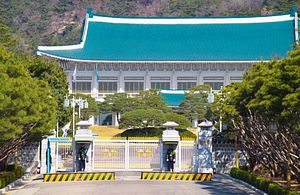With Indian Prime Minister Narendra Modi currently on a three nation visit to May 19, all eyes will be on his time in China. His stops in South Korea and Mongolia will receive less attention.
Yet India’s ties with South Korea are important both from a strategic and economic perspective. Bilateral trade has consistently increased over the past two decades. During her visit to Seoul in December 2014, External Affairs Minister Sushma Swaraj referred to both the presence of Korean companies in India, as well as the level of bilateral trade, estimated at $17 billion, still far below its potential of $40 billion, which both countries have targeted.
There is also a broad consensus across the political spectrum in India about the need for a robust relationship with Seoul, amplified by the steady growth in engagement between the respective political leaderships. Some of the high-level political exchanges between India and South Korea in recent years include former South Korean President Lee Myung-bak’s state visit to India in 2010, which was followed by a visit to Korea by India’s former President Pratibha Patil in July 2011. Prime Minister Manmohan Singh visited South Korea in March 2012. In January 2014, South Korean President Park Geun-hye had a reasonably successful visit to India, where she was the guest of honour at Republic Day. Park was accompanied by a business delegation, and the main highlight was a memorandum of understanding signed between The Export-Import Bank of Korea and India Infrastructure Finance Co Ltd for the funding of infrastructure projects. Key issues were also discussed, including South Korea’s strategic initiatives in East Asia, among them trust-building on the Korean Peninsula and the Northeast Asia Peace and Cooperation Initiative.
An agreement was also signed to share information about the nuclear activities of Pakistan and North Korea, something that has been worrying both countries.
Park’s visit to India was followed by a meeting with Modi in Naypyidaw on the sidelines of the East Asia Summit. Ties have also been established at the subnational and city level. In fact, Modi himself led a delegation to South Korea while chief minister of Gujarat in 2007, and a number of other states have established close ties due to rising investment. Meanwhile, Hyderabad has signed a sister city agreement with Suwon in South Korea.
The fact that Modi included South Korea in his three nation visit clearly illustrates the significance the prime minister attaches to this relationship, which could play an important role in Modi’s “Make in India” vision. In areas like shipbuilding, as well as in rail and other infrastructure development, there is great scope for further cooperation.
During his visit, Modi will need to showcase some of his government’s initiatives, to allay the fears of Korean investors, especially in the aftermath of POSCO’s apparent withdrawal from Orissa.
Beyond the economic dimensions, there are other reasons why the South Korea visit is important.
First, South Korea is a democracy, and one that has made tremendous progress with its infrastructure, technology, and economy. In a 2013 speech, before he became prime minister, Modi referred to that progress. “South Korea also gained independence at the same time. It is the size of Gujarat. Now, in this short span, it is among the developed nations. Such a small country hosts Olympics. Through sports, it has established a position in the world.”
The success of democratic South Korea should underscore the point that economic growth and democracy can go hand in hand; that there is no contradiction. While India does not like to interfere in the internal political dynamics of a country nor does it believe in pontificating, the fact that it attaches immense importance to democracy is clearly evident from Modi’s recent interview with Time, in which he said, “If you were to ask me at a personal level to choose between democratic values on the one hand, and wealth, power, prosperity and fame on the other hand, I will very easily and without any doubt choose democracy and belief in democratic values.”
Second, South Korea was one of the first countries that sought to increase economic engagement with India after the latter initiated its “Look East” policy in the 1990’s. South Korean investment in India has increased over the past two decades, to an estimated $3 billion. This is in spite of the challenges investors have had to face, with one of the biggest setbacks to the relationship being the apparent scrapping of the POSCO Pproject, which would have been a major investment.
During her visit to Seoul in December 2014, Sushma Swaraj emphasized how South Korean companies have been able to establish a strong reputation in India. “We are happy at the success that the Korean companies have enjoyed in India. Today Hyundai, Samsung and LG have become household names in India.”
Third, New Delhi has been increasingly vary of Pyongyang’s increasing proximity to Islamabad, and unsurprisingly that issue was high on the agenda during Park’s India visit last year. It remains to be seen whether Modi and Park will seek to find ways to keep the Islamabad-Pyongyang relationship in check.
Finally, soft power is an important factor in the bilateral relationship, aided by the large number of Korean expats in India and the rising number of Indian tourists to South Korea. Places like Busan and Jeju Island are becoming popular destinations for Indians. For its part, India announced a visa on arrival facility for South Koreans in 2014.
Clearly, South Korea and India enjoy a strong convergence on a number of issues, and the relationship can not be dubbed transactional. While all eyes will be on Modi’s China sojourn, it is the robust relationship with South Korea that could help India get its economy back on track and consolidate its position in Asia.
Tridivesh Singh Maini is a Senior Research Associate with The Jindal School of International Affairs, OP Jindal Global University, Sonepat. The views here are his own.

































